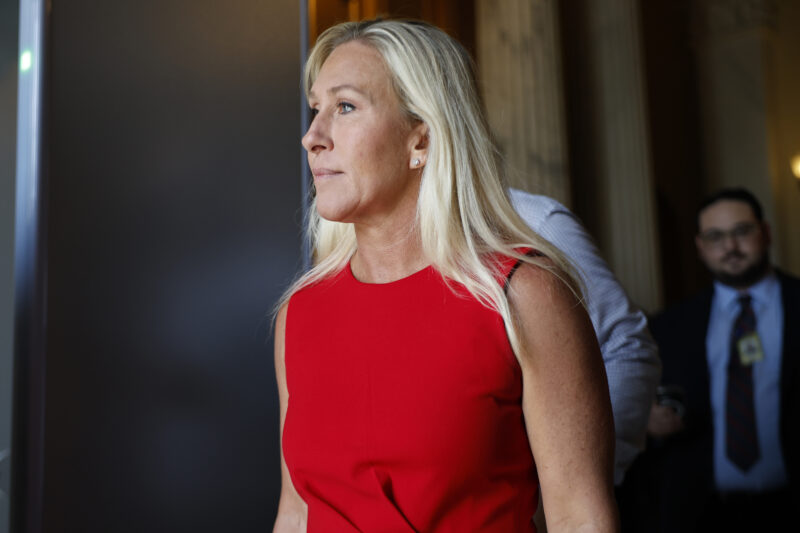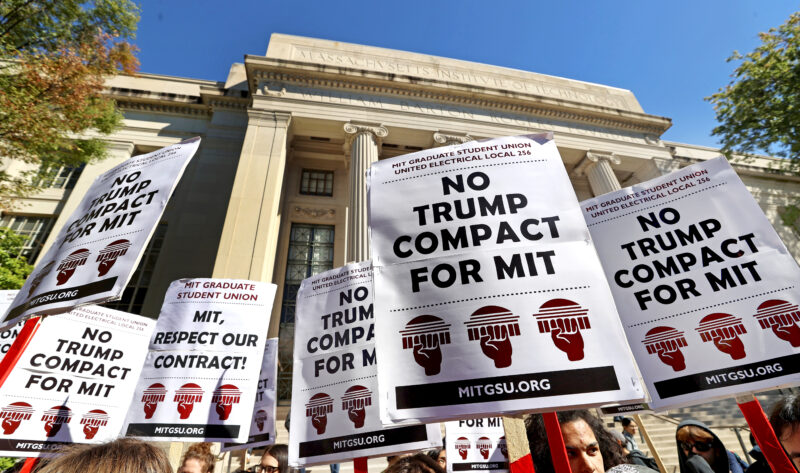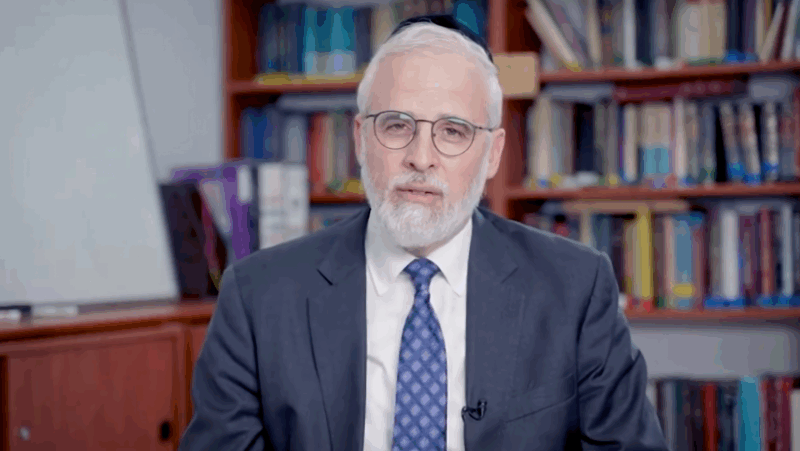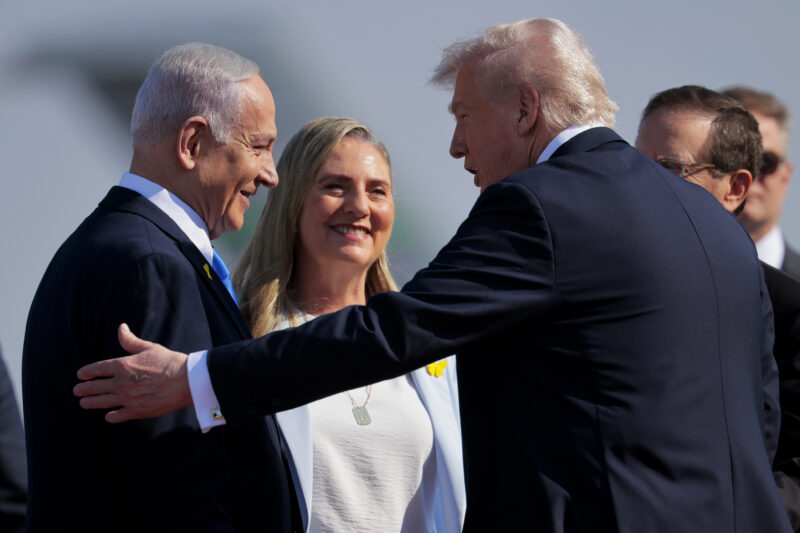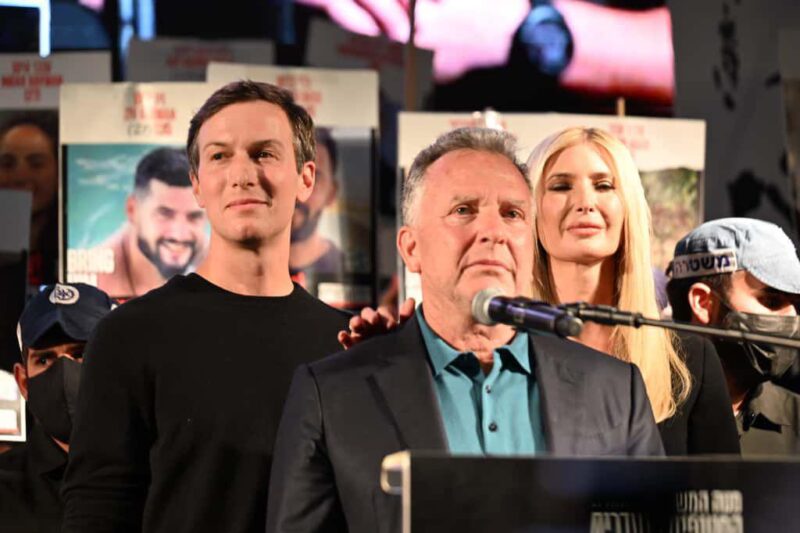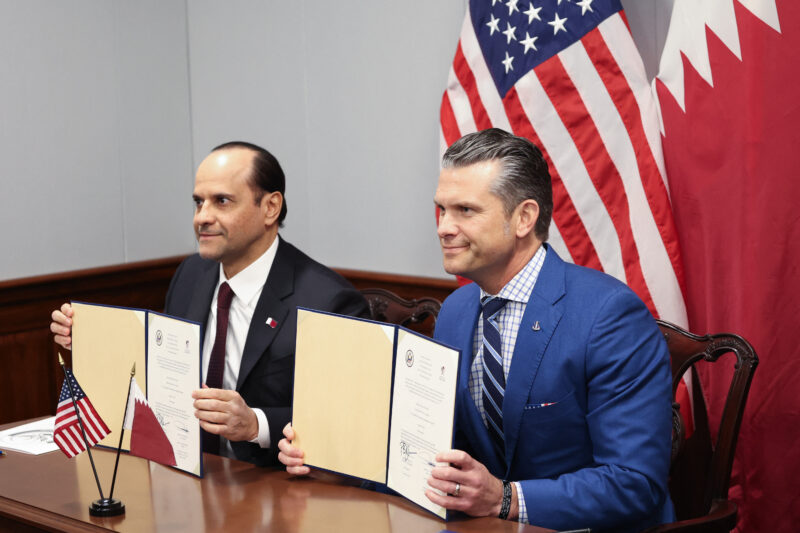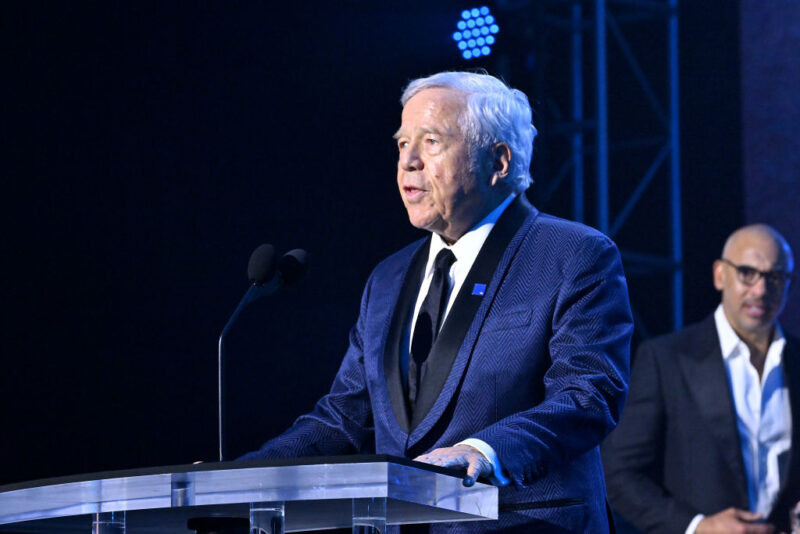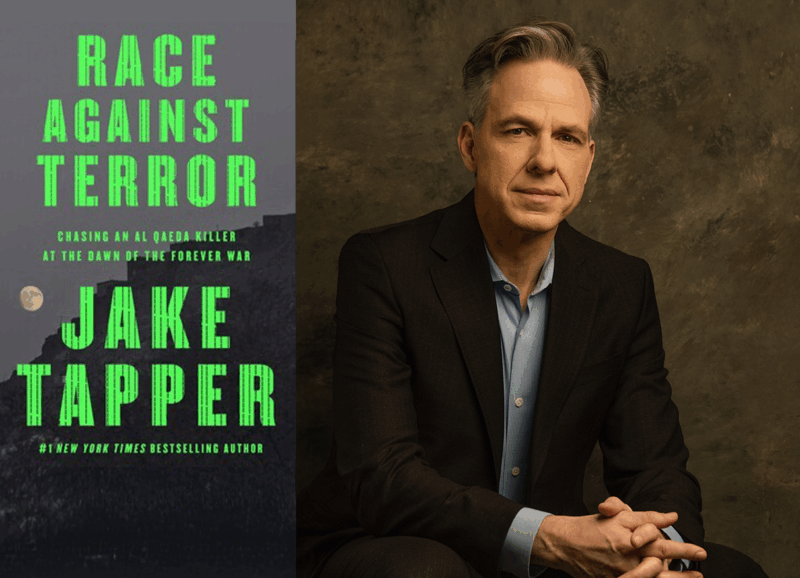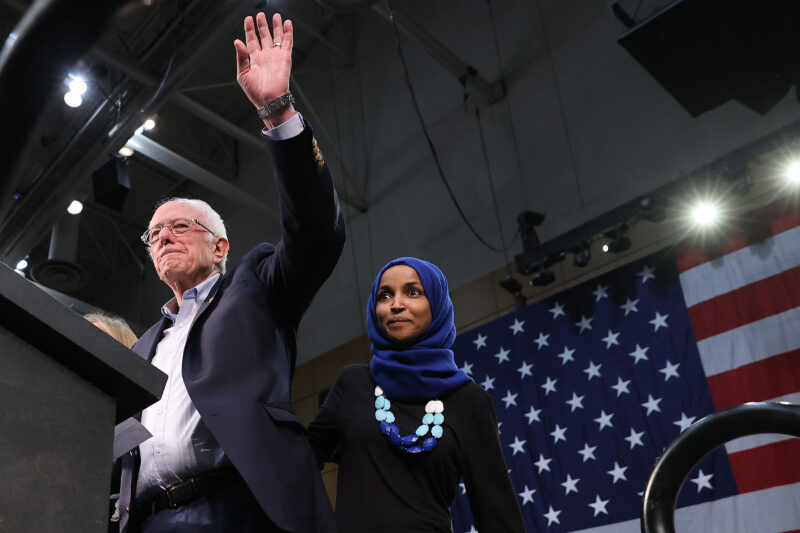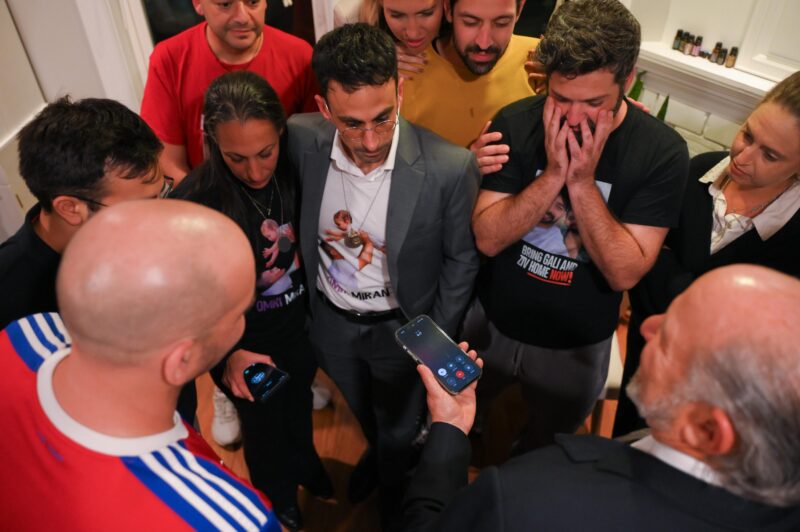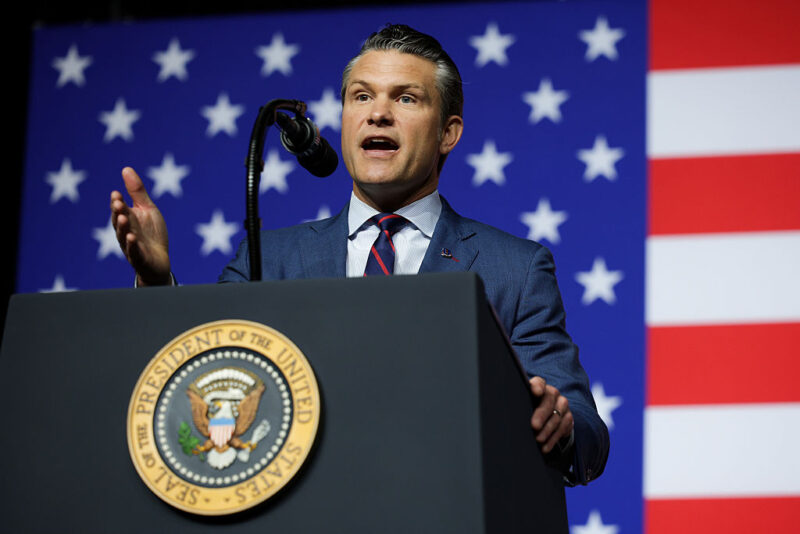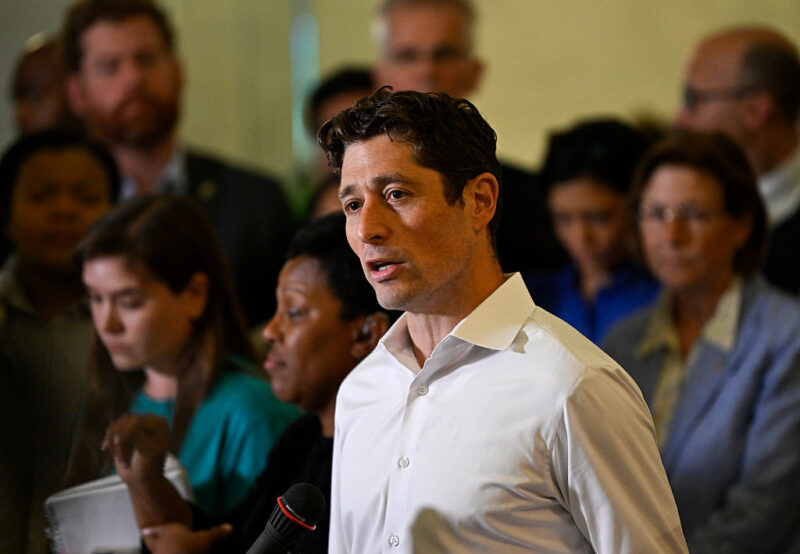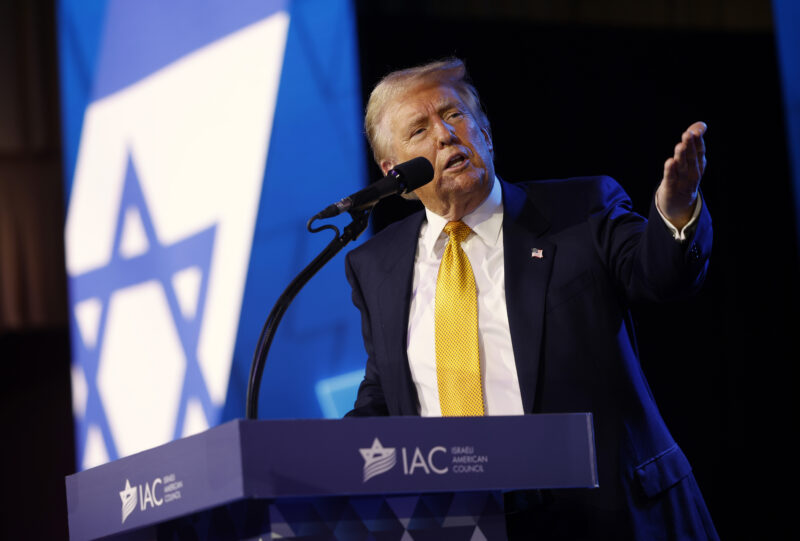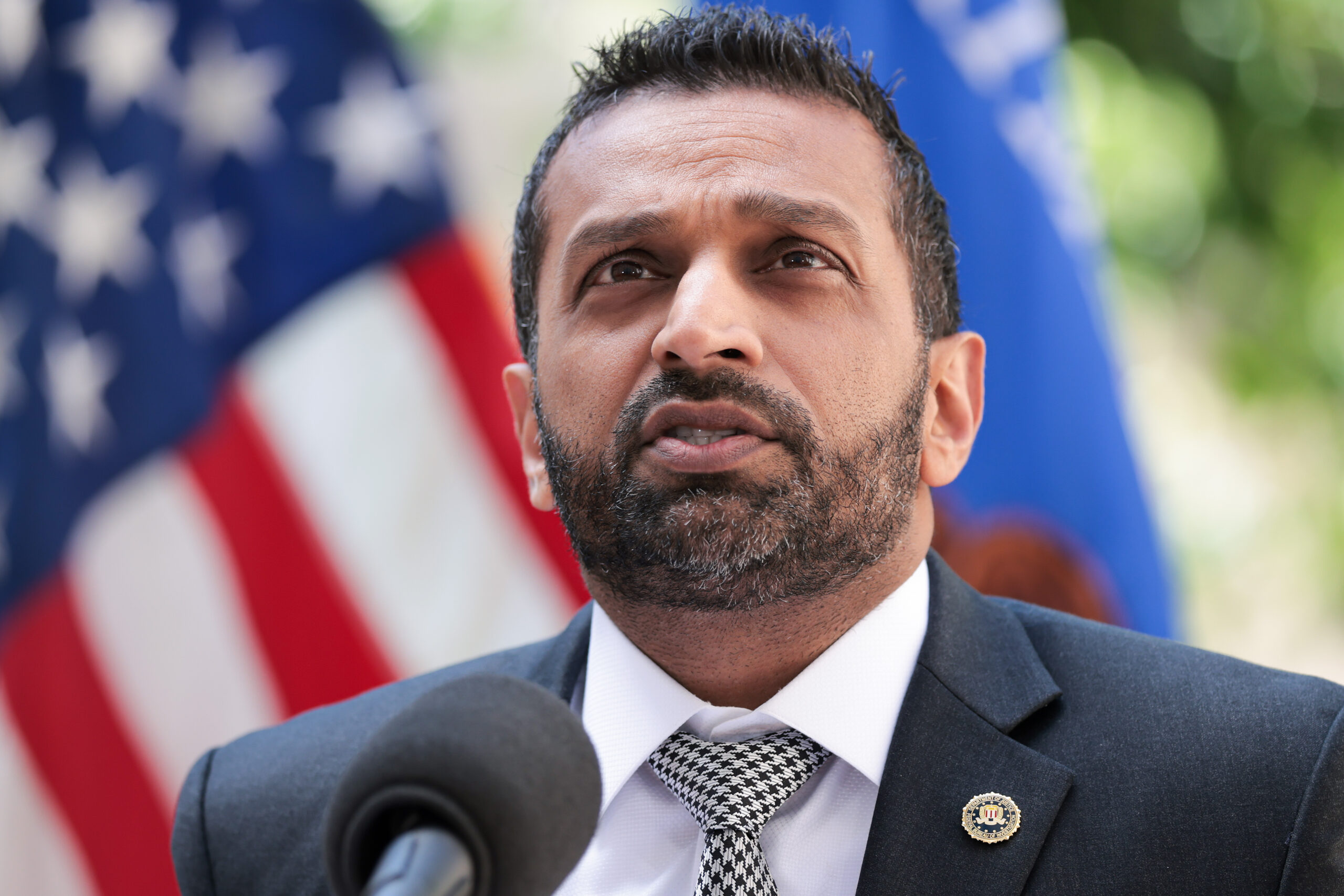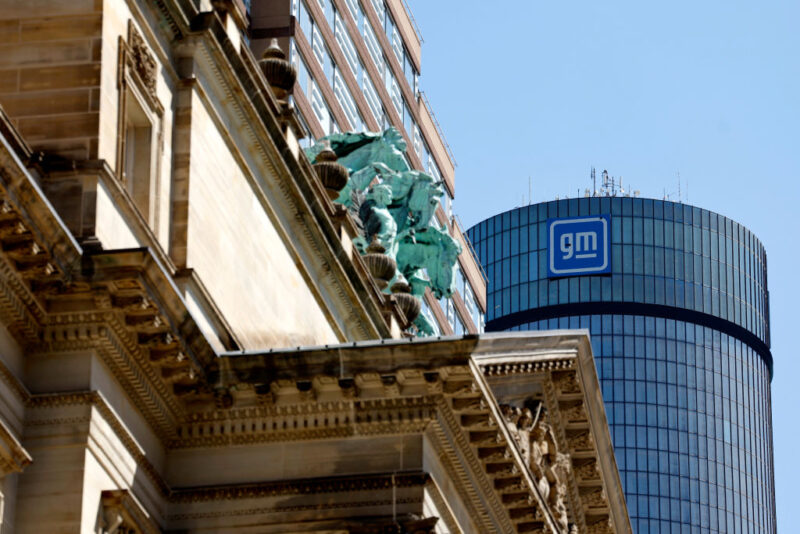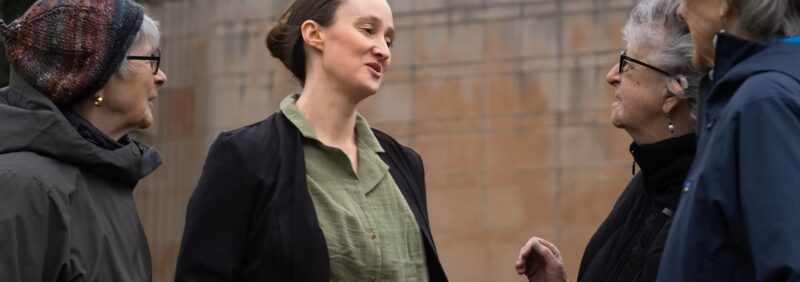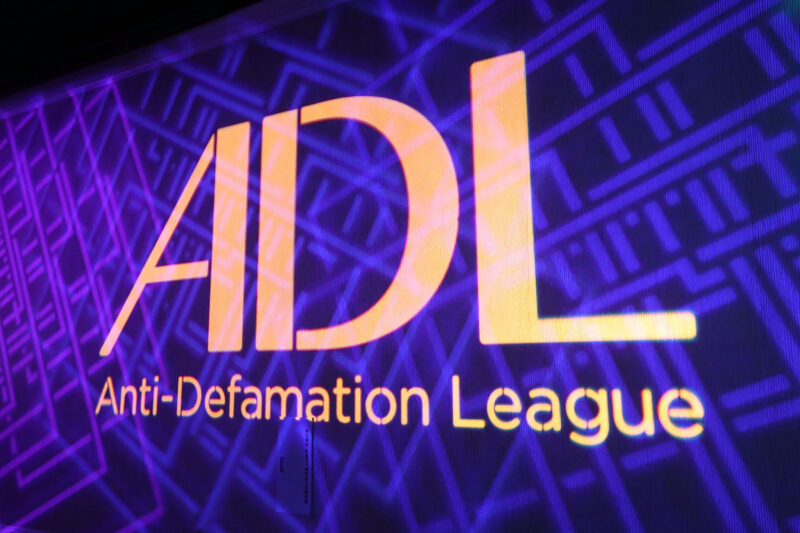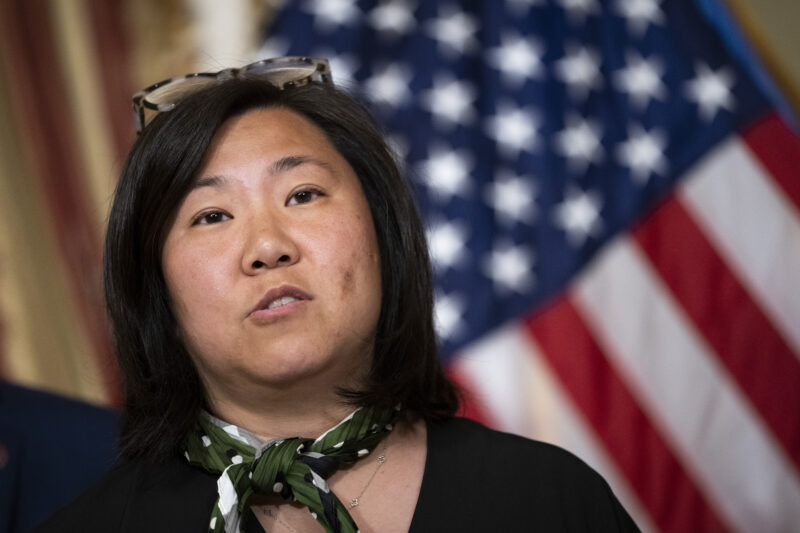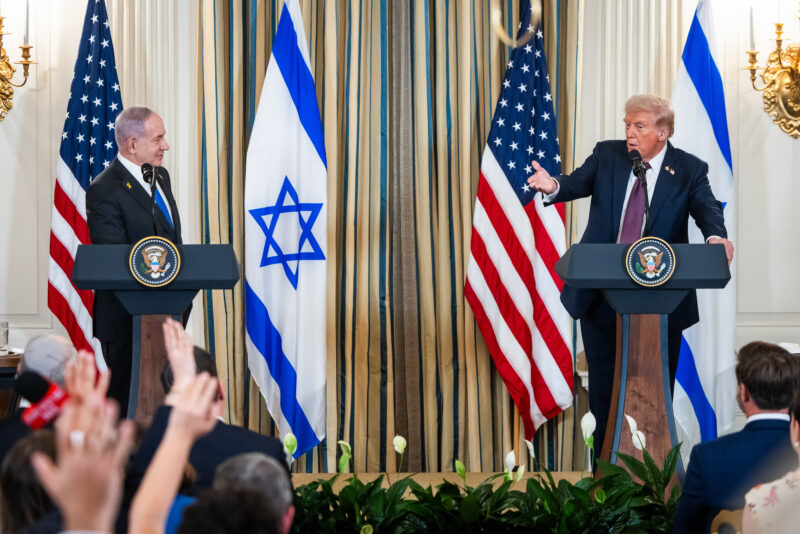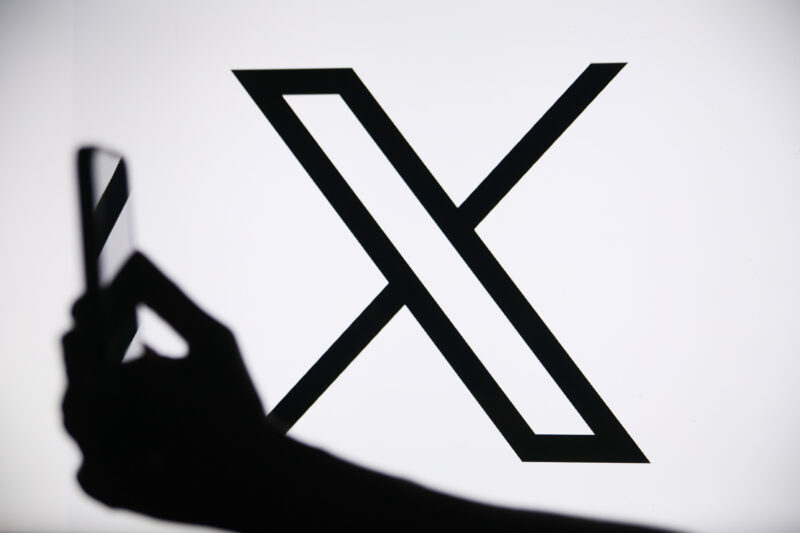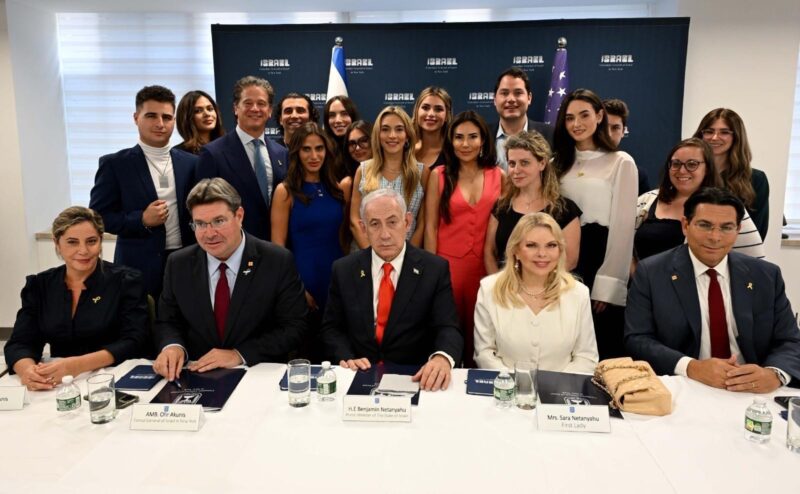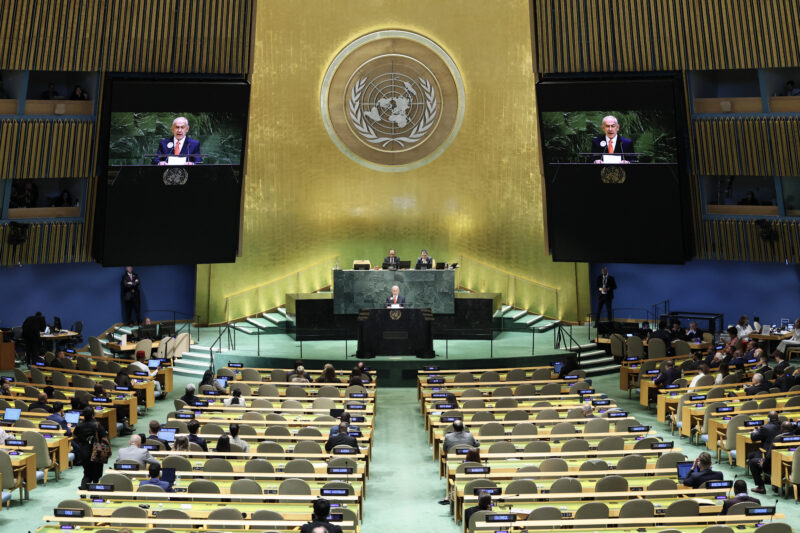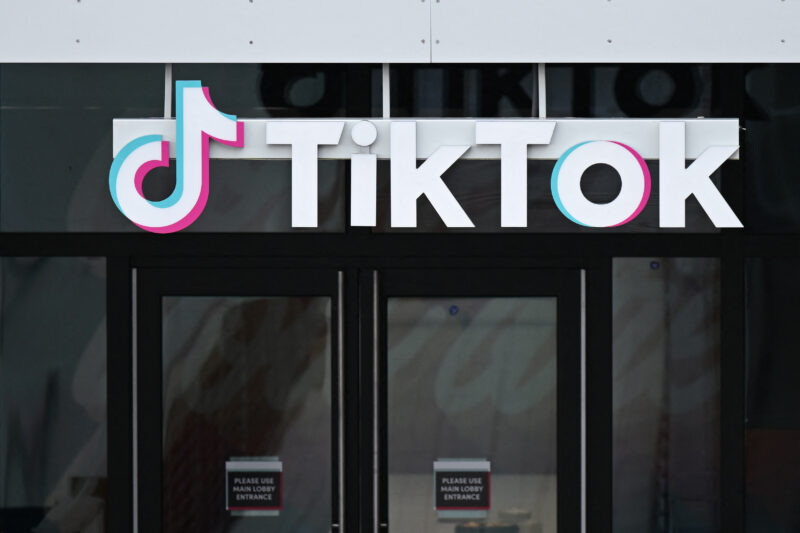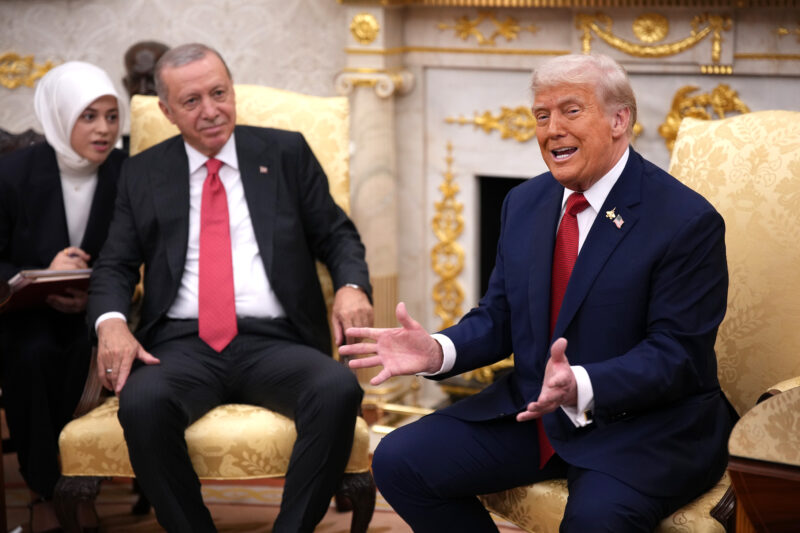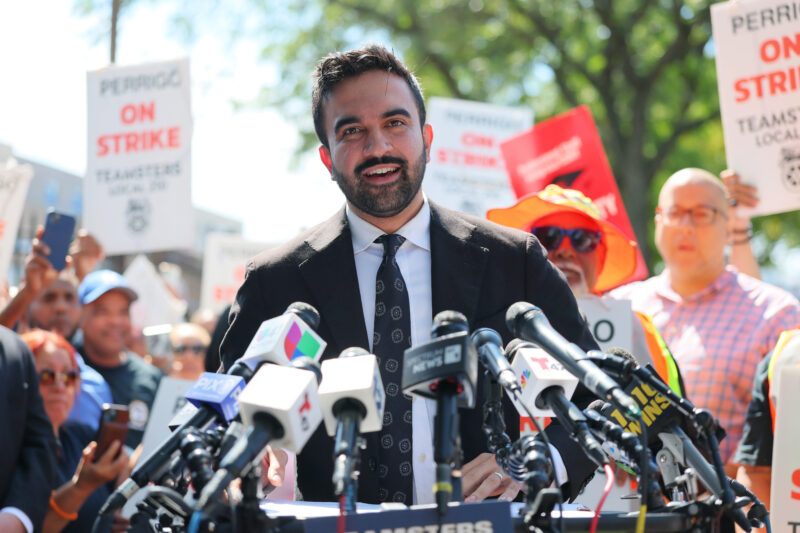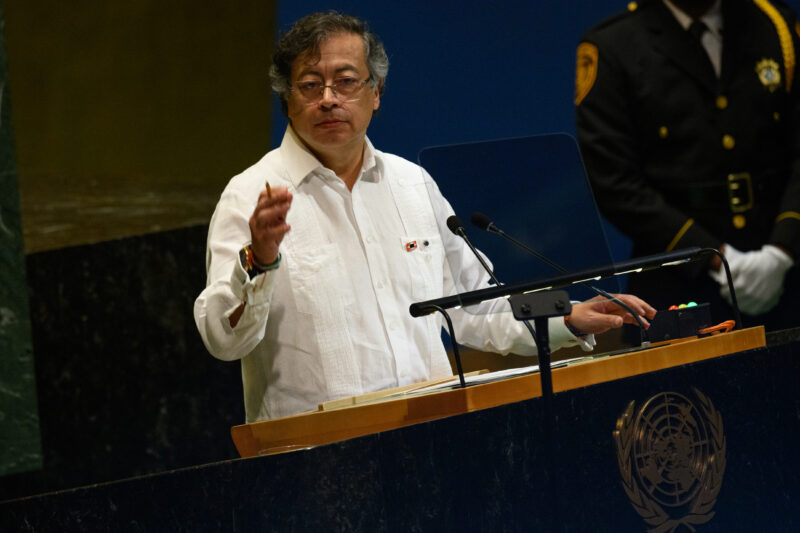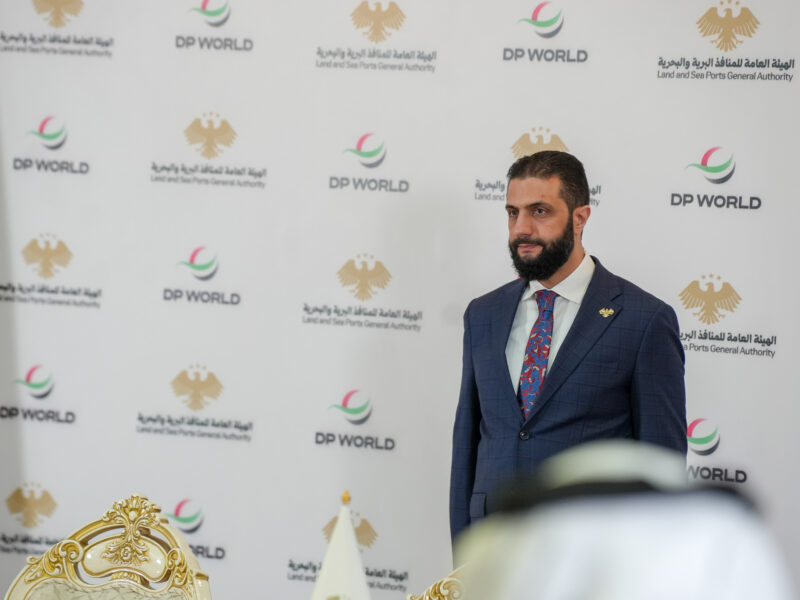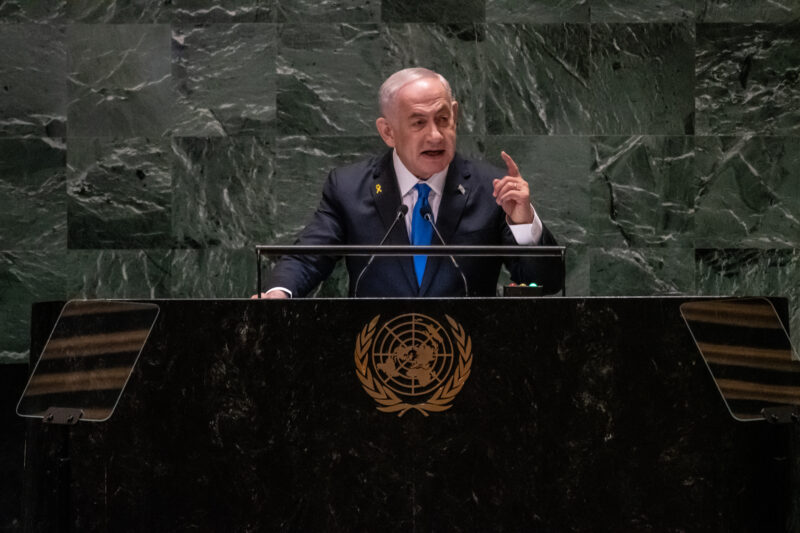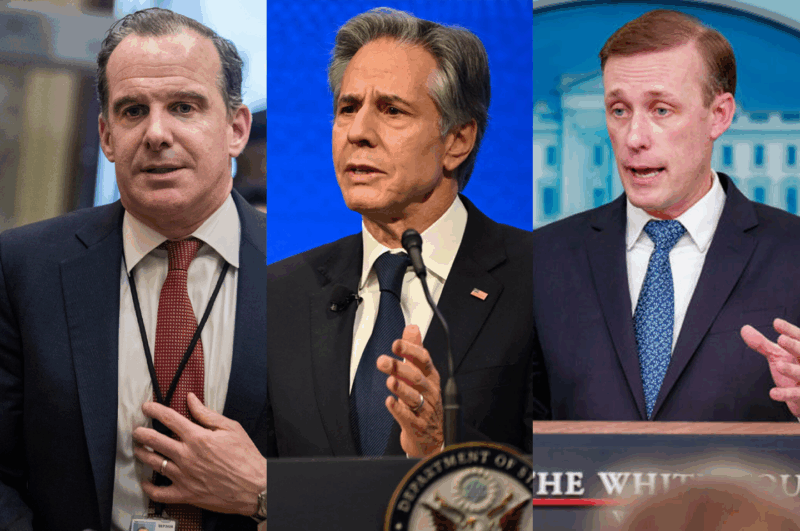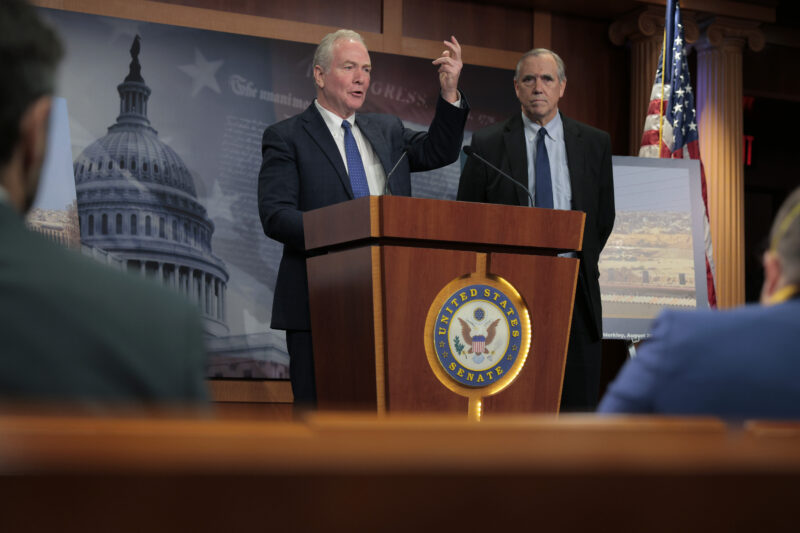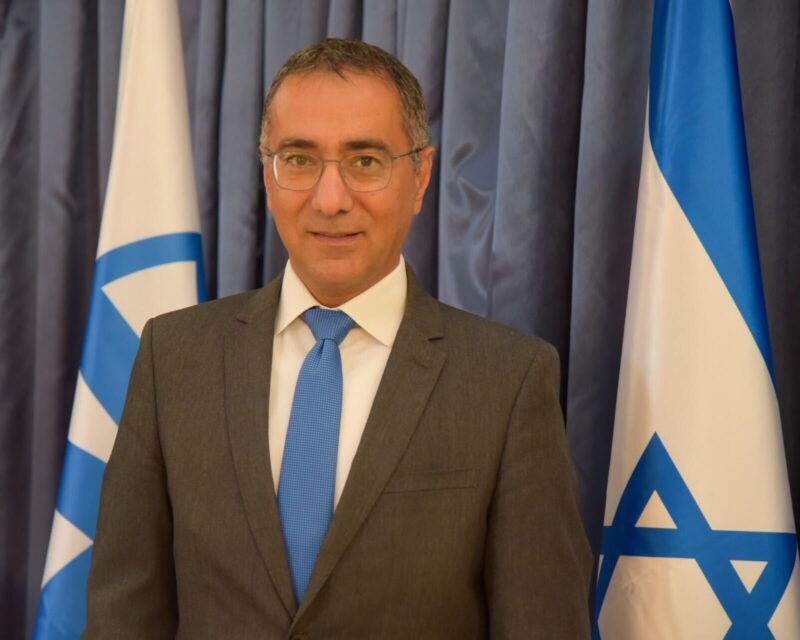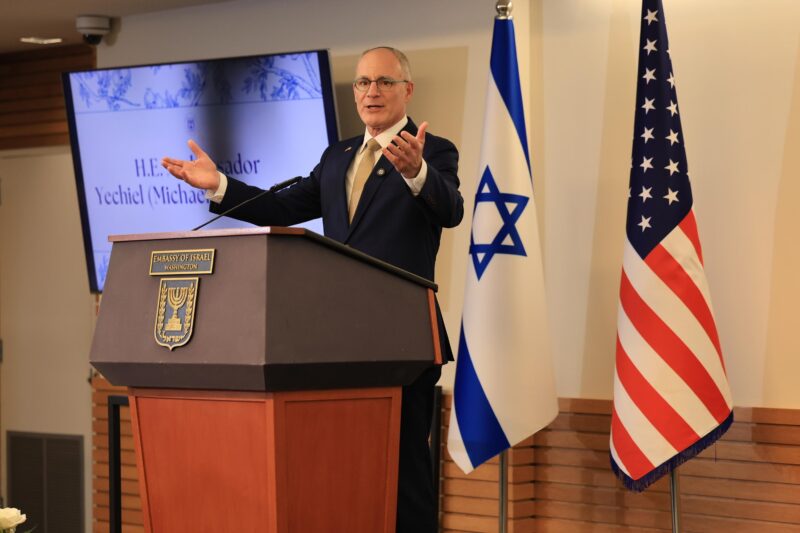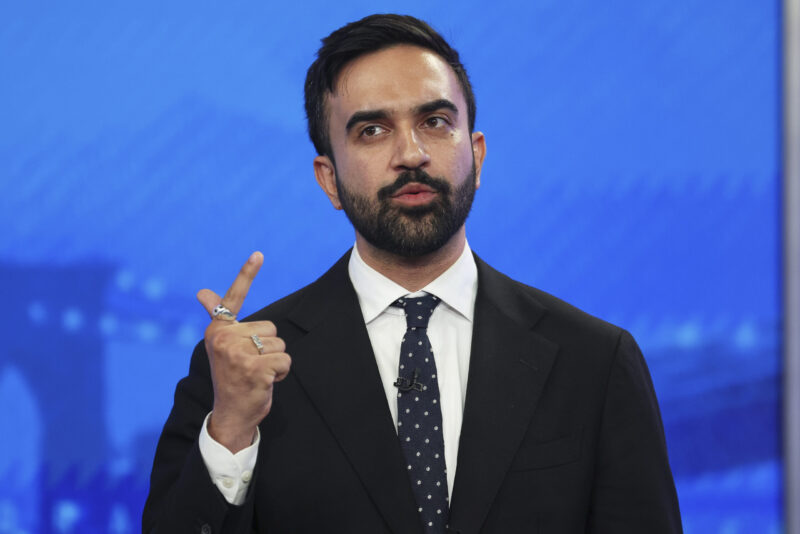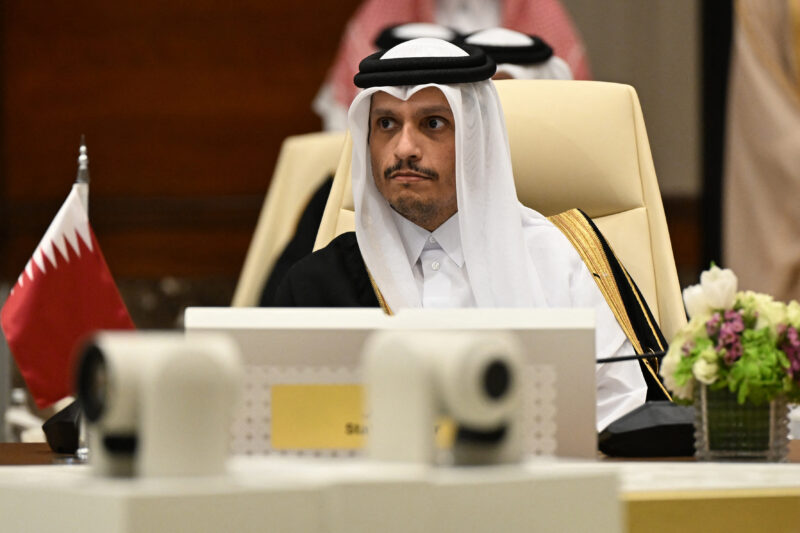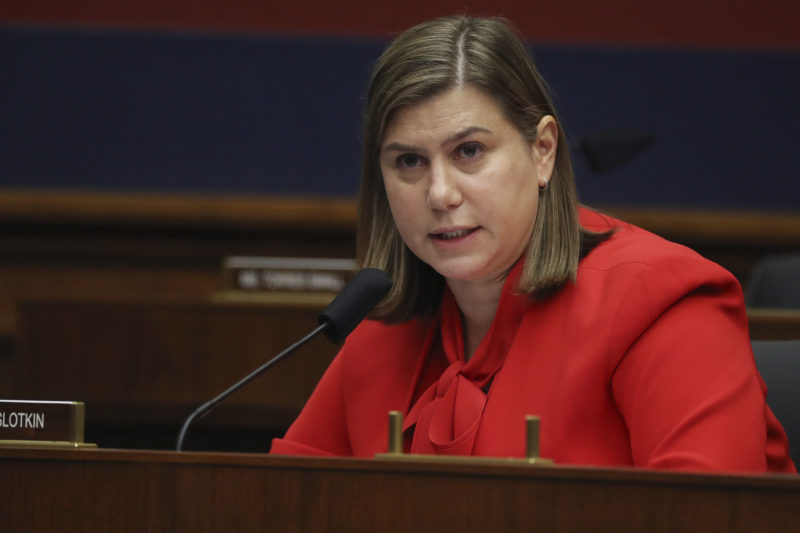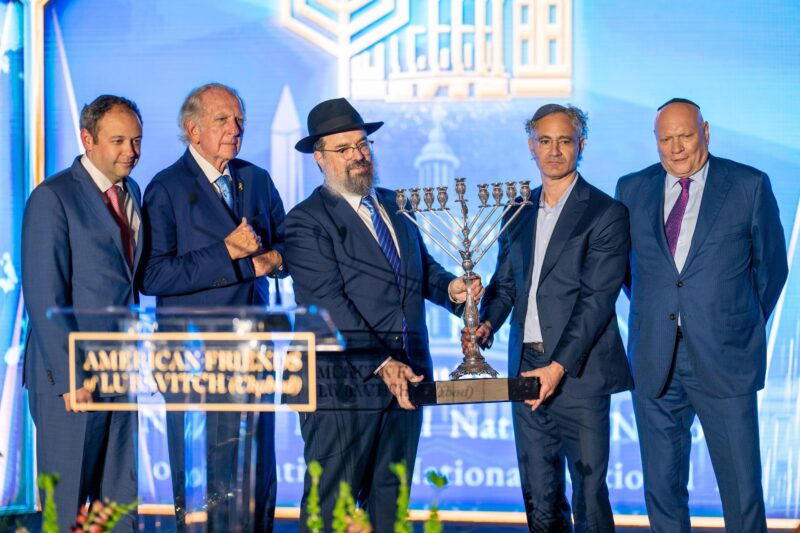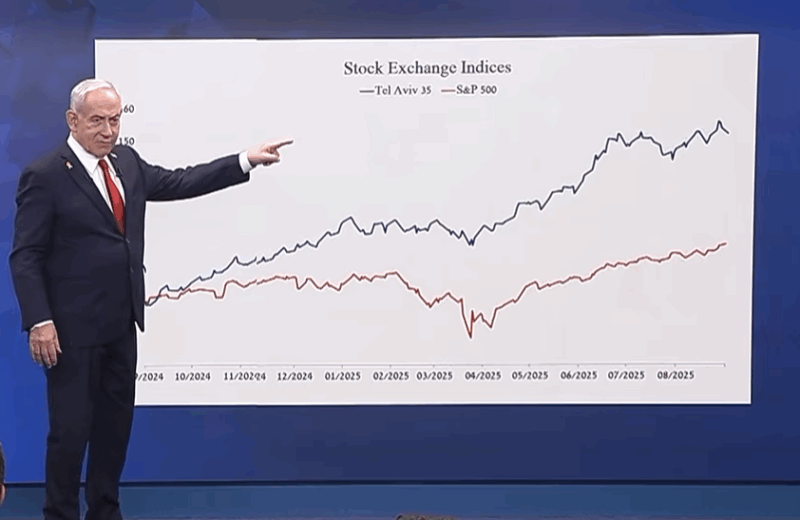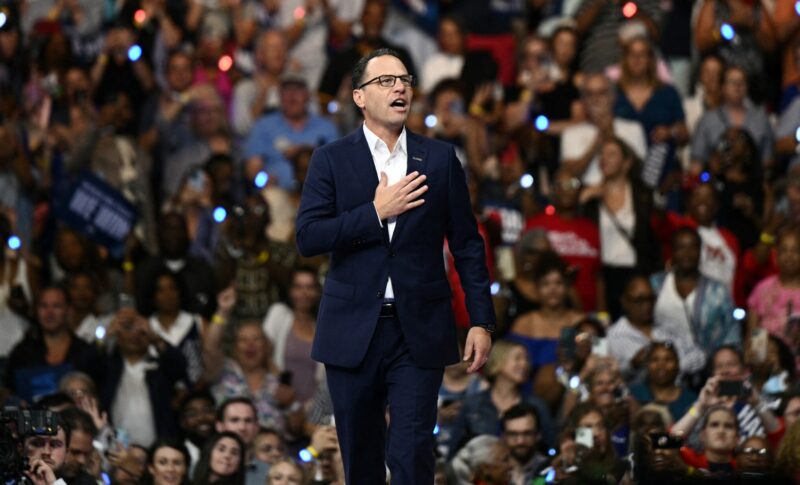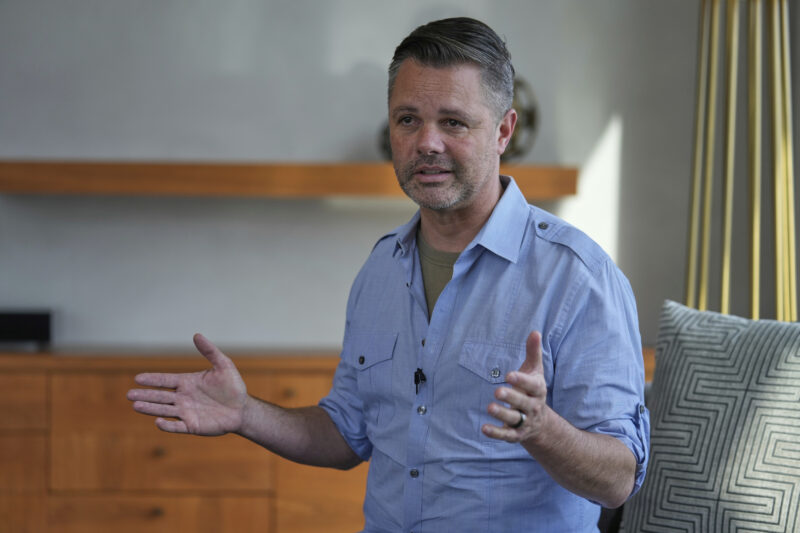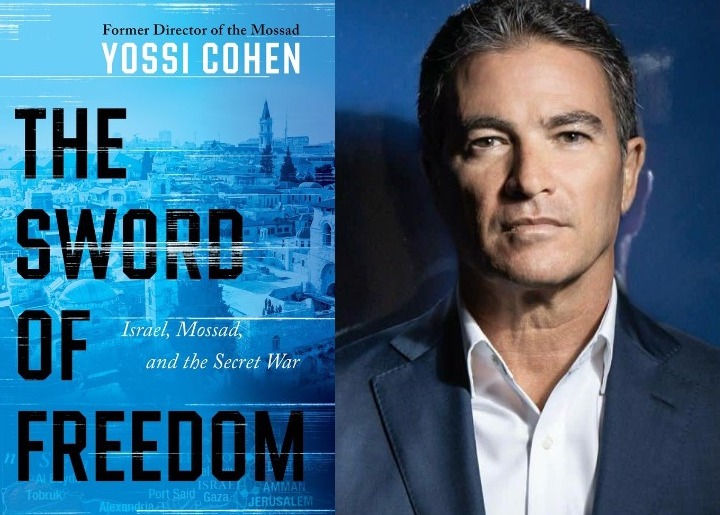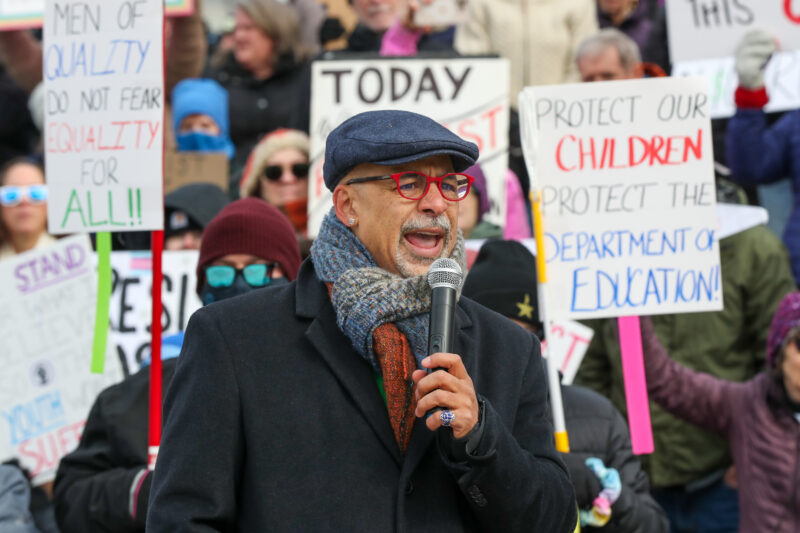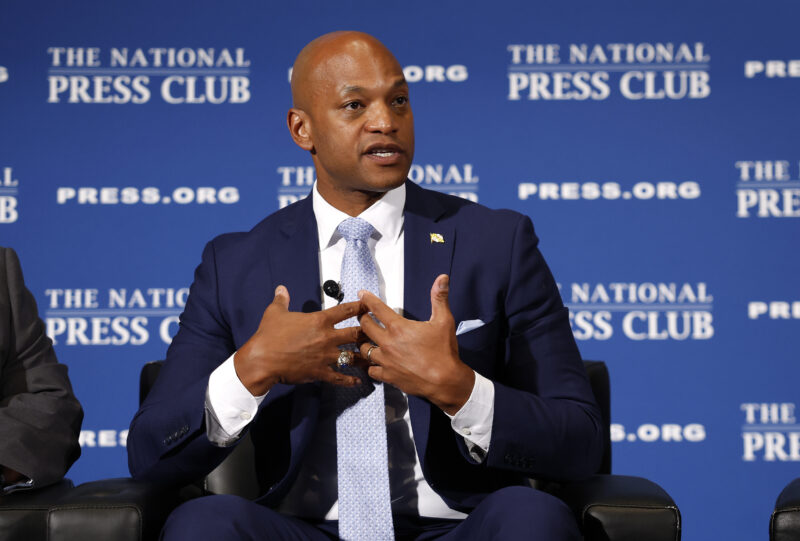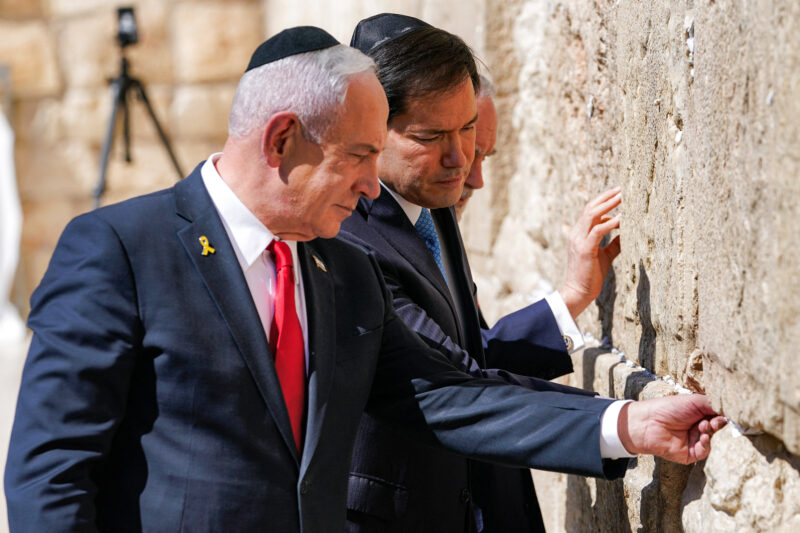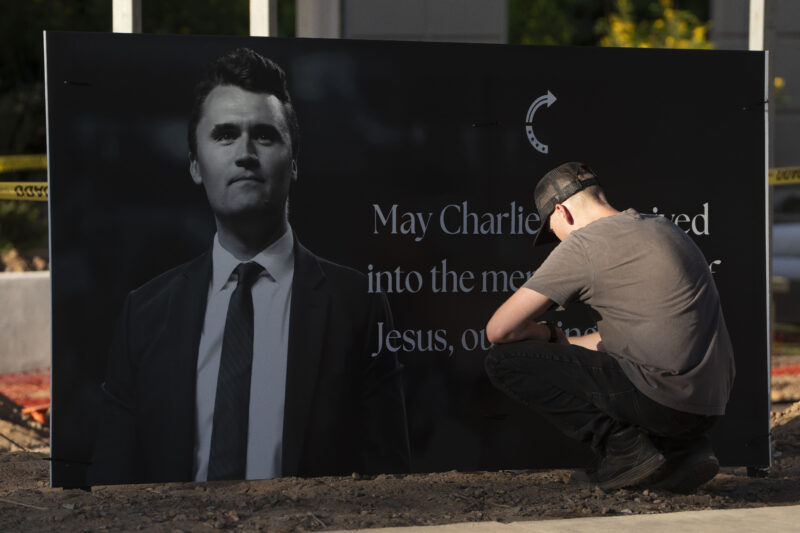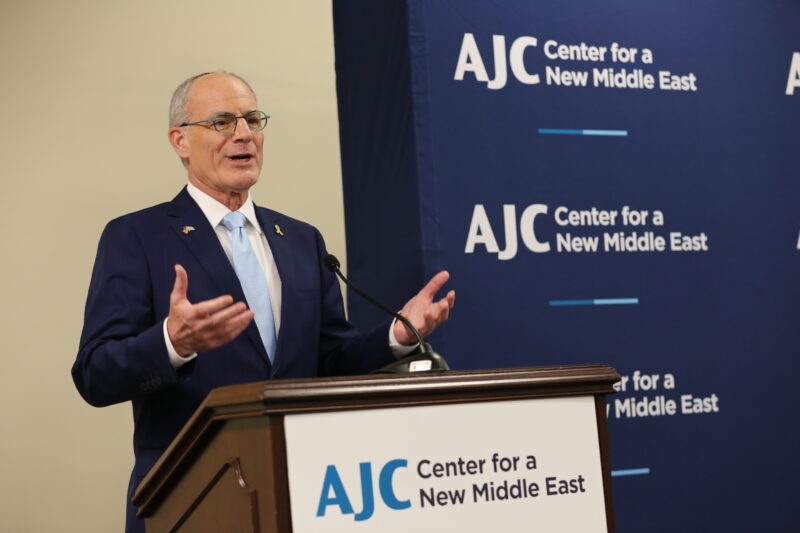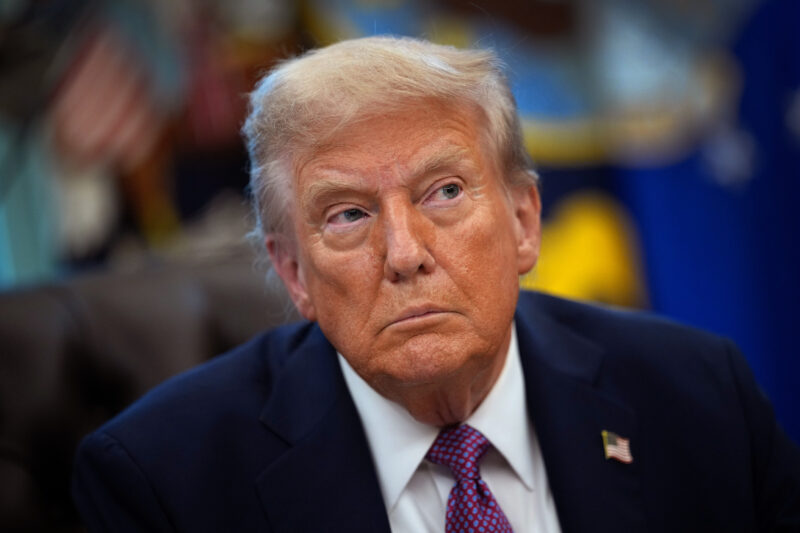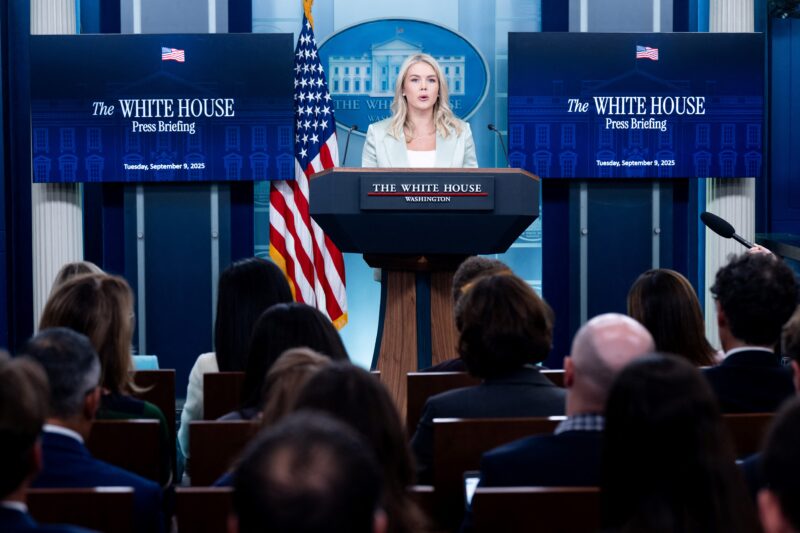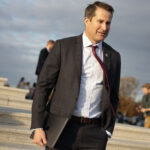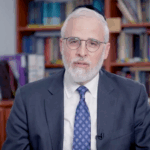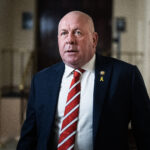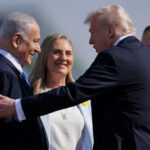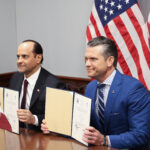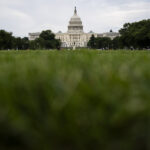Netanyahu speaks American, but has no news for Israelis
The fact that the speech did not give Israelis any new reason to be hopeful was at the root of much of the criticism

WASHINGTON, DC - JULY 24: Israeli Prime Minister Benjamin Netanyahu addresses a joint meeting of Congress in the chamber of the House of Representatives at the U.S. Capitol on July 24, 2024 in Washington, DC. Netanyahu’s visit occurs as the Israel-Hamas war reaches nearly ten months. A handful of Senate and House Democrats boycotted the remarks over Israel’s treatment of Palestine. (Photo by Justin Sullivan/Getty Images)
When Israeli Prime Minister Benjamin Netanyahu addressed Congress on Wednesday, he joined the American conversation on Israel, but Israelis were left wanting.
Netanyahu made sure to highlight bipartisan support for Israel. He thanked President Joe Biden for supporting Israel — mostly at the beginning of the war — and expressed appreciation for U.S. aid, while paying tribute to former President Donald Trump’s accomplishments for Israel ahead of their Mar-a-Lago tête-à-tête on Friday.
But Netanyahu also gave what was essentially a point-by-point rebuttal to the arguments of Israel’s critics and detractors on the American left.
Among the IDF heroes in the audience whose stories Netanyahu told were Lt. Avichail Reuven, of Ethiopian descent, who ran eight miles on Oct. 7 to save Israelis’ lives, and Sgt. Ashraf al-Bahri, a Muslim Bedouin, who defended Kibbutz Be’eri that day. The image of those soldiers sitting side-by-side pushed back against those who call Israelis white European supremacists.
Further driving that point home later in the speech, Netanyahu said of anti-Israel protesters: “They call Israel a colonialist state. Don’t they know that Israel is where Abraham, Isaac and Jacob prayed, where Jeremiah and Isaiah preached, and where David and Solomon ruled? For nearly four thousand years, the land of Israel has been the homeland of the Jewish people. It’s always been our home; it will always be our home.”
While protesters stood outside the Capitol building holding Hamas flags, Netanyahu said that “they stand with rapists and murderers.” He noted that Director of National Intelligence Avril Haines said some protests are funded by Iran, saying “they want to disrupt America” and “have officially become Iran’s useful idiots.”
”Gays for Gaza,” Netanyahu said, “might as well hold up signs saying ‘chickens for KFC.’”
As demonstrators burned American flags outside nearby Union Station, Netanyahu saluted the fraternity brothers at University of North Carolina who ensured that protesters could not destroy the Stars and Stripes on their campus.
As for the International Criminal Court, Netanyahu tied their claims about Israel to historic blood libels against Jews, and such as the accusation that Israel is starving Gazans — belied by the half a million tons of food Israel allowed in — and deliberately targeting civilians.
The specific accusation that Israel is not doing enough to protect civilians tied in with those who tried to stop the IDF from entering Rafah, from the viral “eyes on Rafah” social media posts to the Biden administration’s warnings and threats.
”Remember what so many people said? If Israel goes into Rafah, there’ll be thousands, maybe tens of thousands of civilians killed,” Netanyahu recounted.
Yet, he pointed out, the civilian toll in southern Gaza was lower than in other stages of the war — despite Hamas’s best efforts to use civilians as human shields. “Israel got the civilians out of harm’s way, something people said we could never do, but we did it.”
Netanyahu also had a message for the growing isolationist wing of the Republican Party, which is concerned about keeping America out of foreign wars. While expressing gratitude for America providing Israel with military aid, Netanyahu said that the countries have “jointly developed some of the most sophisticated weapons on Earth that help protect both our countries, and we also help keep American boots off the ground while protecting our shared interest in the Middle East.”
No Netanyahu speech would be complete without the Iranian threat, and there was an extensive section of the address about how Hamas, Hezbollah and the Houthis are Iranian proxies, while the mullahs of Tehran make no secret that they view the U.S. as their greatest enemy.
Netanyahu said that what he wanted Americans to remember from the speech was the following: “Our enemies are your enemies; our fight is your fight; and our victory will be your victory.”
In that vein, he called for an “Abraham alliance” between the U.S., Israel, and friendly Arab states, including those which do not yet have diplomatic relations with Israel, in order to counter Iran. He did not mention Saudi Arabia by name.
Netanyahu’s speech was written for an American audience, but, of course, he knew it would be watched by many in Israel. Many of the sentiments Netanyahu expressed in his speech are not controversial in Israel, and many Israelis said on traditional and social media that they were moved by the stories of IDF soldiers’ courage and glad to see the warm reception in Congress.
Yet his speech received mixed reviews at home. Some of that is politics as usual; opposition leader Yair Lapid surely did not actually think Netanyahu would take this opportunity to accept responsibility for the failures of Oct. 7 after nine months of not doing so.
But the fact that the speech did not give Israelis any new reason to be hopeful was at the root of much of the criticism.
Stopping Hezbollah’s attacks on northern Israel was left as an open question; Israel would prefer a diplomatic solution but is ready to “do whatever it must” to stop them.
The war in Gaza could end faster if the U.S. military aid comes faster, Netanyahu said, but he continued to share only vague ideas of what Gaza would look like after that point. He spoke of demilitarization and deradicalization with help from regional partners, as he has since the beginning of the war, and administration by “Palestinians who do not seek to destroy Israel,” even though such an administration is not in place.
It was always unlikely that Netanyahu would announce a hostage release deal in the speech, though the hostages’ relatives continued to press for one and said the visit to Washington would be a failure without it. Netanyahu pointed out rescued hostage Noa Argamani in the audience and the plight of the hostages’ relatives, and he mentioned bringing the hostages home as one of the Gaza war’s aims. But there was nothing new about progress toward a deal.
Before the speech, an Israeli diplomatic source said that one of Netanyahu’s goals for his meeting with Biden is to advance a hostage deal. After the address, a source in Netanyahu’s entourage said that it would help bring about a hostage deal. Seeing dozens of standing ovations from the U.S. Congress in support of Israel will make Hamas leader in Gaza Yahya Sinwar realize that America is on Israel’s side and there will be no pressure for Israel to concede, the source argued.
If that turns out to be true when Israeli negotiators travel to Cairo on Thursday, then the speech may be viewed differently in Israel.





